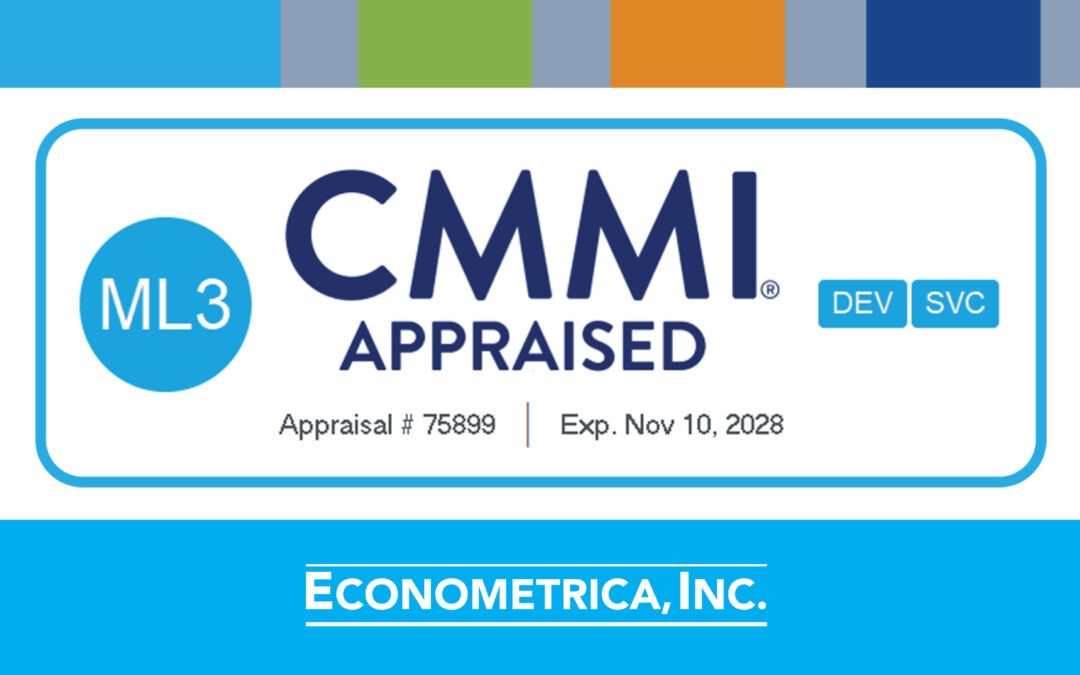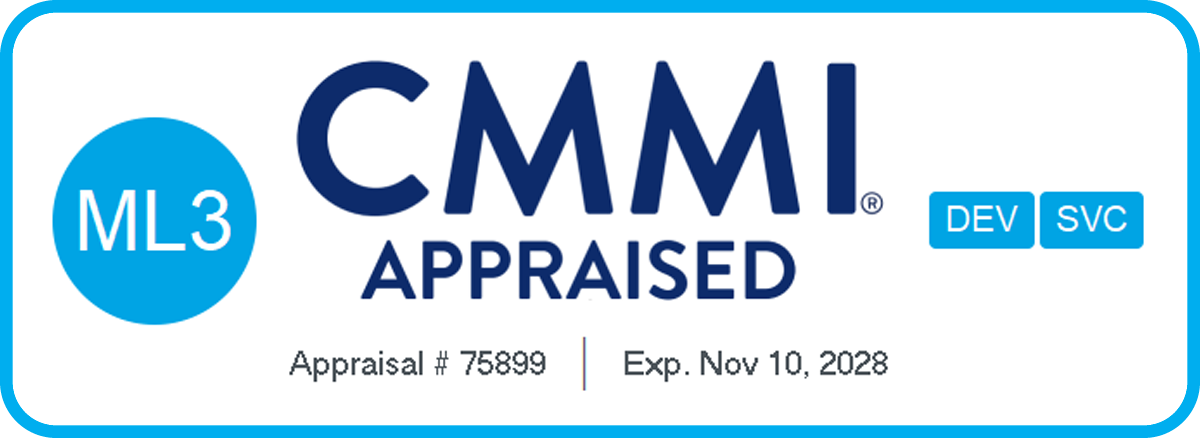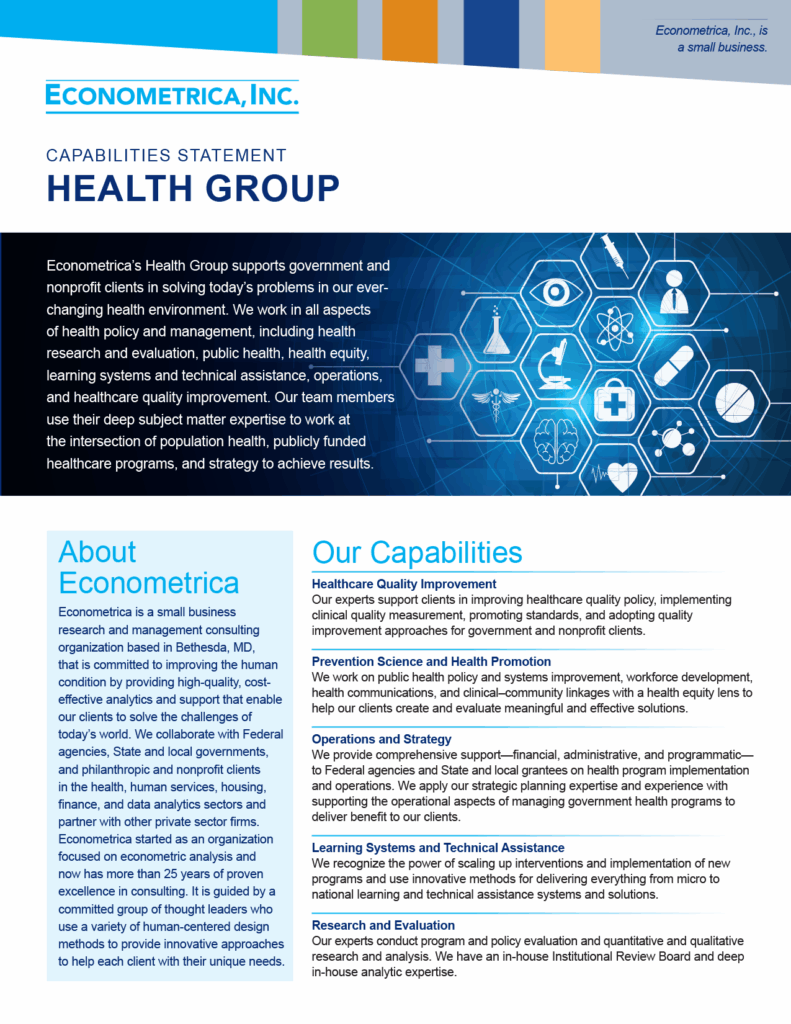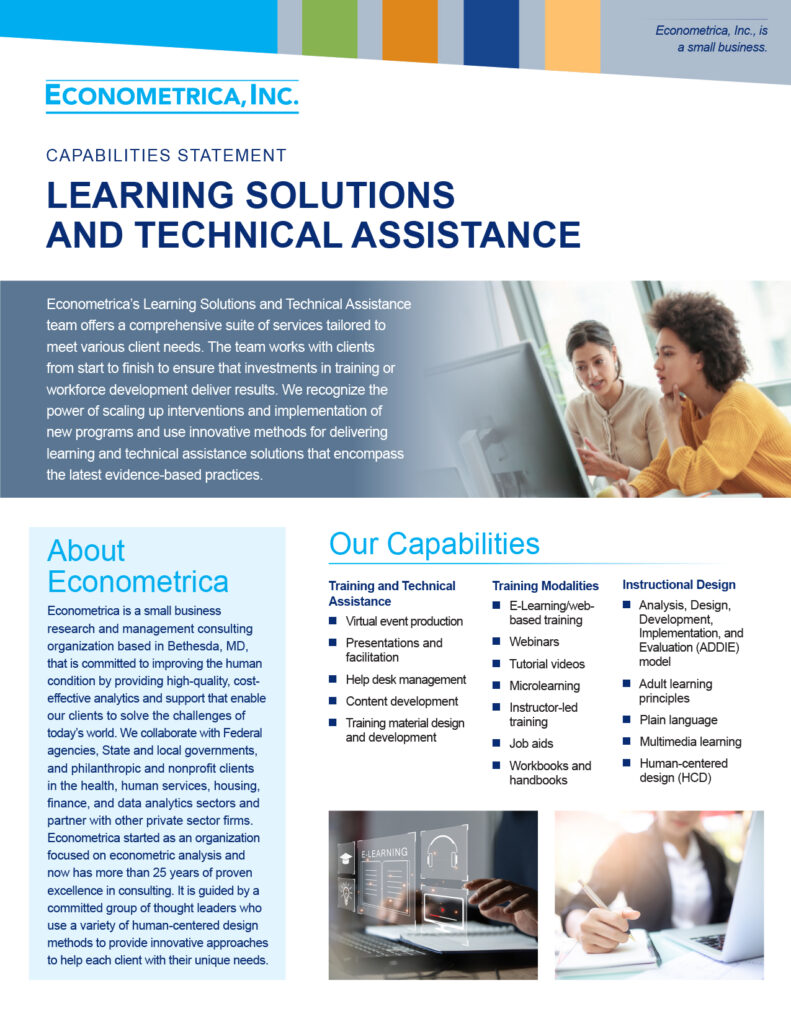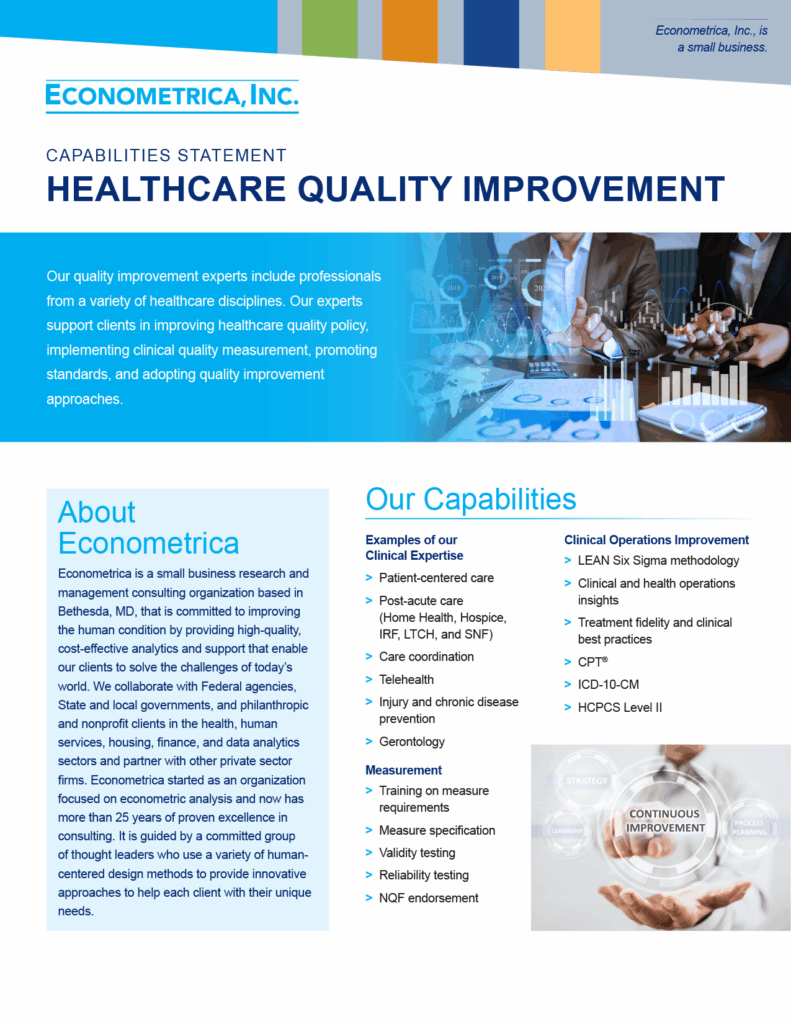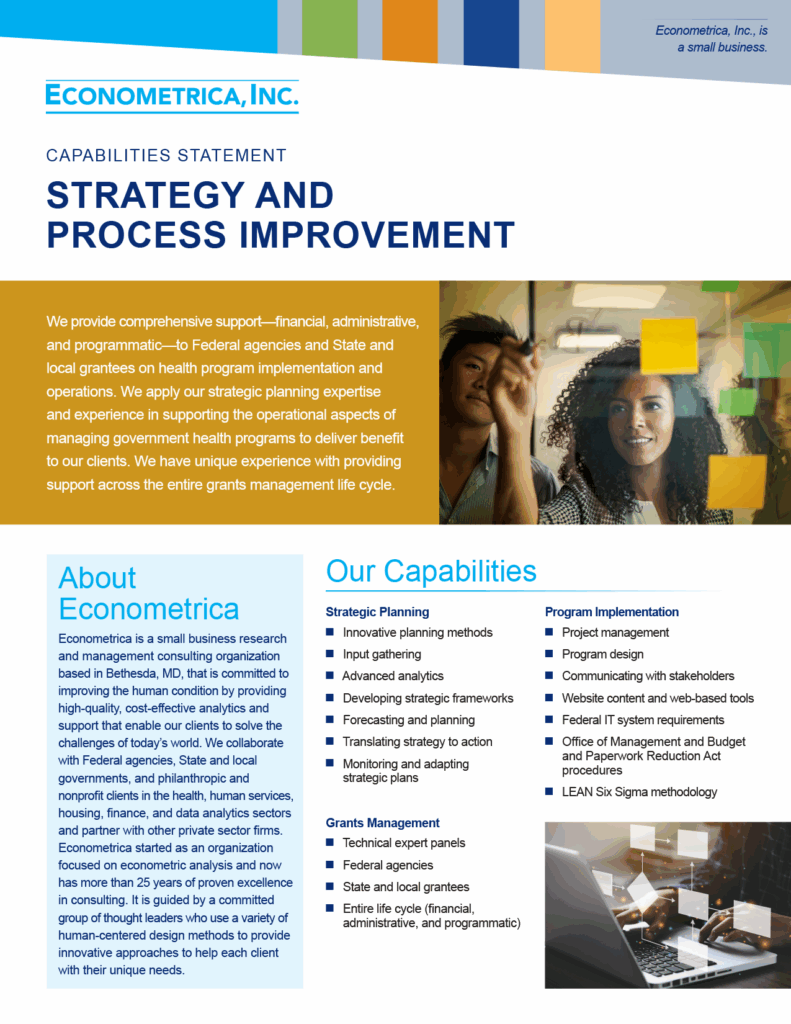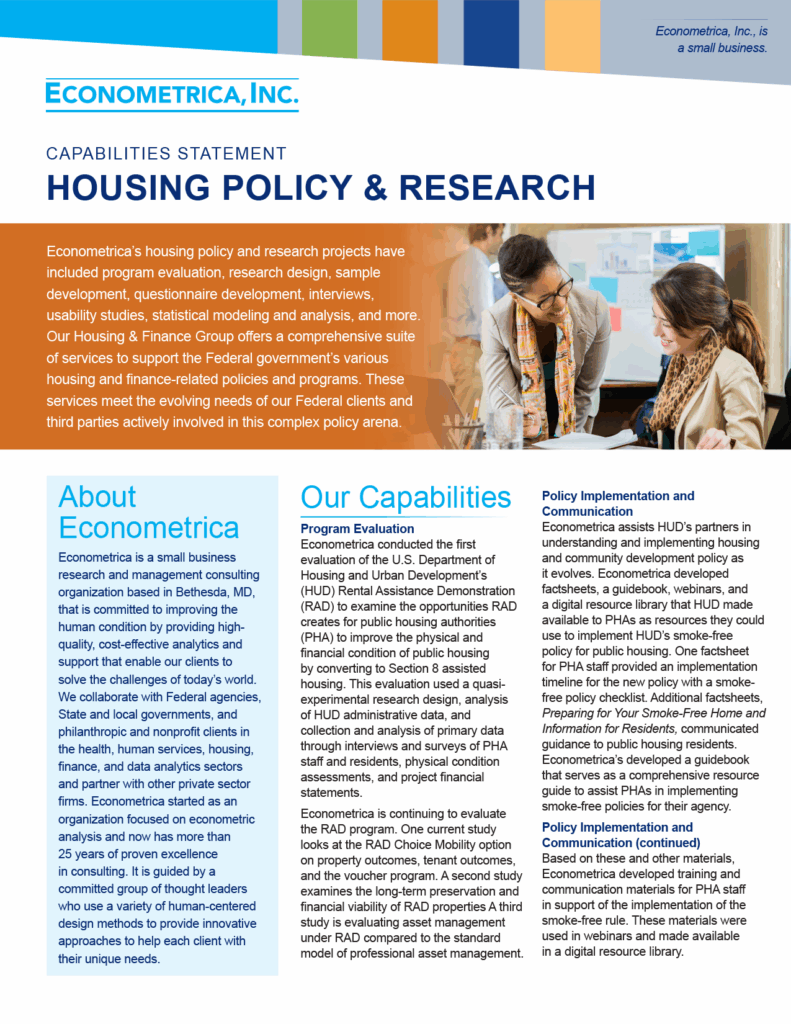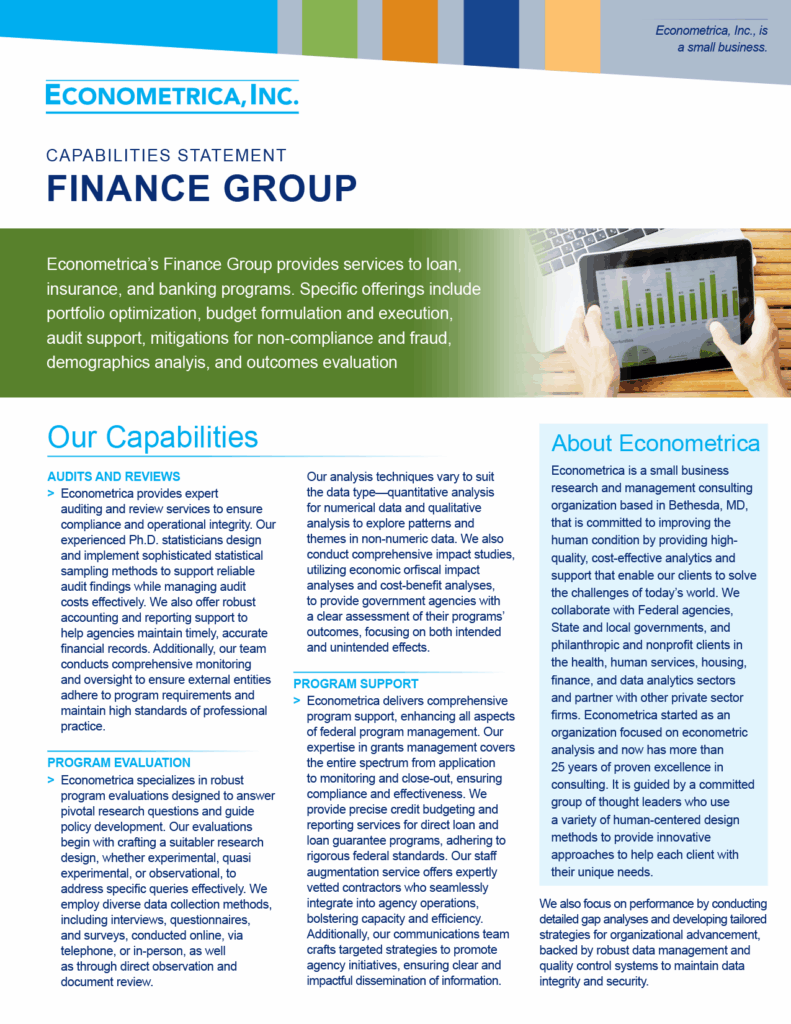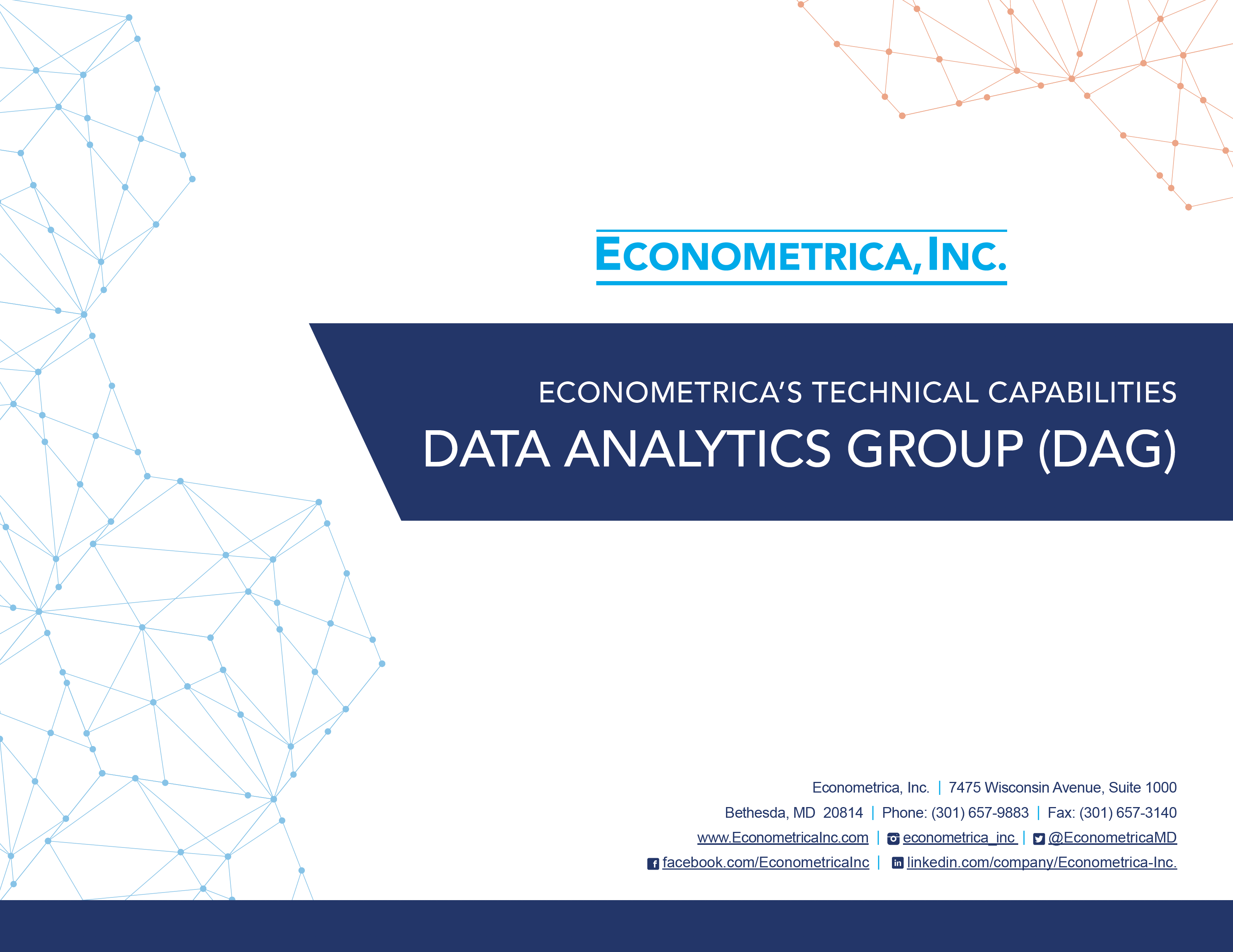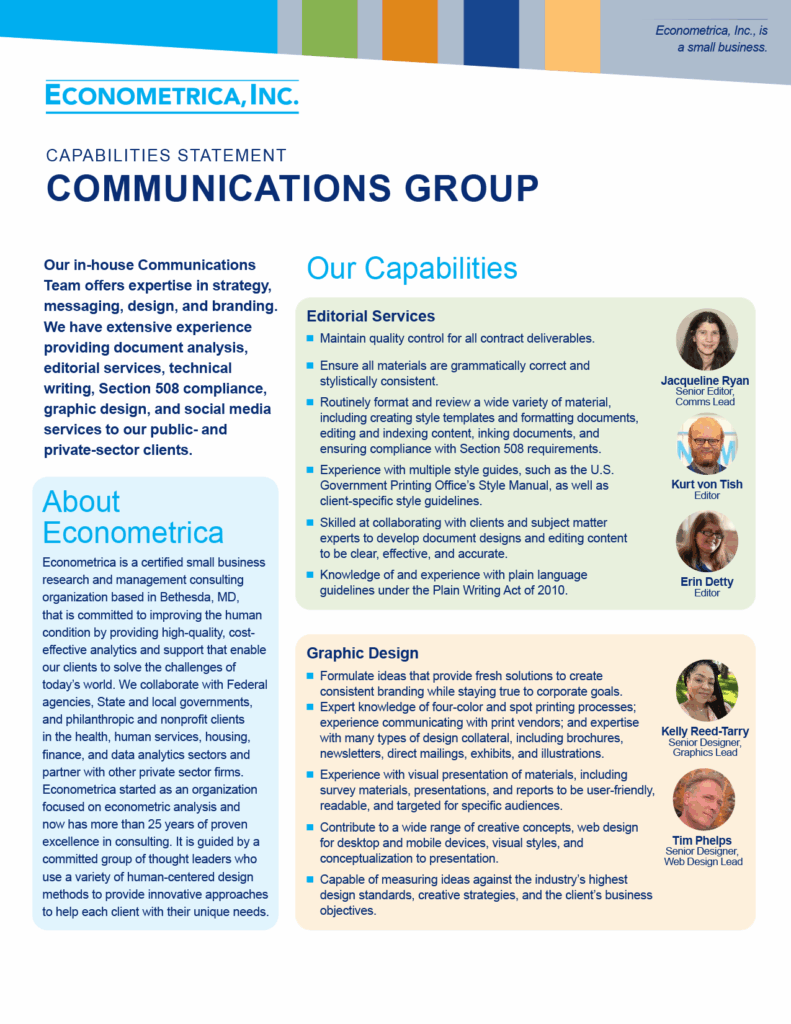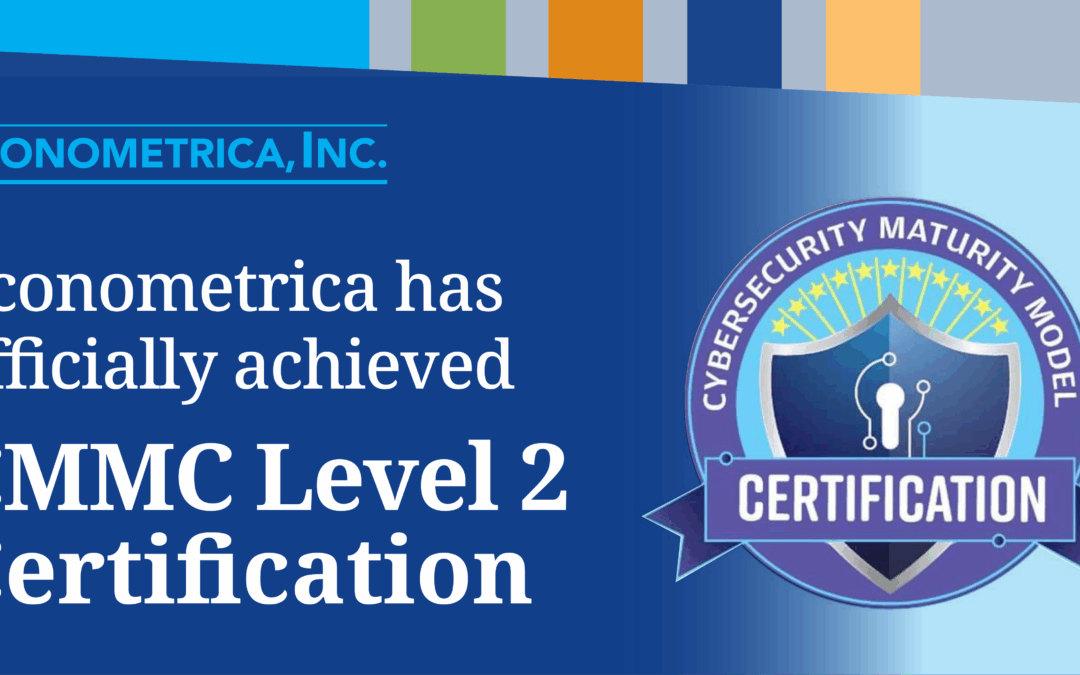
Econometrica Achieves CMMC Level 2 Certification, Validating Commitment to National Security
BETHESDA, MD, December 16, 2025 – Econometrica, Inc., a provider of technical assistance and program support to the U.S. Department of Defense (DOD) and Defense Industrial Base (DIB), today announces that we have successfully achieved Cybersecurity Maturity Model Certification (CMMC) Level 2. Econometrica is currently among 1 percent of DOD contractors that have obtained CMMC Level 2 certificate and is in a position to help partner organizations meet this requirement for contract needs. Our certificate is available upon request.
This certification confirms that Econometrica meets the rigorous cybersecurity requirements established by DOD for the protection of Controlled Unclassified Information (CUI). Our appraisal was conducted by RSI Security, a Certified Third-Party Assessment Organization (C3PAO) authorized by the Cyber AB, in mid-November 2025. Our certification means that Econometrica conforms to the security requirements of NIST Special Publication 800-171 Revision 2 for our appraised Enclave system. Our certificate is in effect until December 7, 2028.
This certification demonstrates that Econometrica has:
- Regulatory and contract compliance.
- Cybersecurity maturity advancement.
- Strategic and business benefits.
- Documentation and evidence of records demonstrating implementation and effectiveness of security controls.
Econometrica is proud of achieving this milestone of CMMC Level 2 certification, as it demonstrates our unwavering commitment to safeguarding sensitive information for our government partners as well as other organizations that we have the pleasure to serve. This certification ensures we are fully prepared to meet your contractual requirements, and we hope that you will consider Econometrica for partnership.
Work With Us, Work for Us
Econometrica, Inc., is a small business research and management consulting organization based in the greater Washington, DC, metropolitan area. We are committed to improving the human condition by providing high-quality, cost-effective analytics and support that enable our clients to solve the challenges of today’s world. We collaborate with Federal agencies, State and local governments, philanthropic and nonprofit clients, and private-sector partners in the public health, healthcare, data analytics, housing, and finance sectors.
To work with us on your next project, visit us online or email us at Info@EconometricaInc.com. To explore the benefits of working for us, visit our careers page. Follow us on LinkedIn, X, Facebook, and Instagram.


